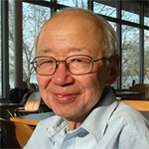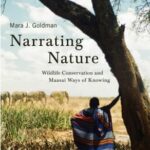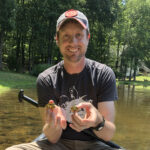
All lectures are presented fully online via Zoom every Friday at 3:30 PM. The link to join the meeting is https://go.wisc.edu/l880yf except when otherwise indicated. Alumni, friends and the public are always invited to attend.

September 29th – Narrating Nature, Decolonizing Conservation: Reflections with Maasai East Africa
Mara J. Goldman, University of Colorado-Boulder
As the global community grapples with how to improve biodiversity conservation efforts, Indigenous communities around the world are demanding the process of conservation itself be decolonized. In this talk, Mara asks what this means globally, and where she works in Northern Tanzania where colonial models of violently separating indigenous people from their homes in the name of conservation continues at pace. Mara presents some aspects of her own approach to the work of decolonizing conservation through my book, Narrating Nature: Wildlife Conservation and Maasai Ways of Knowing (University of Arizona Press, 2020). The book draws on over two decades of fieldwork among Maasai pastoralists in northern Tanzania and southern Kenya. In the book, she seeks to unsettle established ways of knowing, talking about, and managing human-wildlife relations and wildlife approaches have historically dominated.
 October 13th – Milwaukee’s Menomonee Valley: Jobs, greenspace and Indigenous self-determination
October 13th – Milwaukee’s Menomonee Valley: Jobs, greenspace and Indigenous self-determination
Jennifer Foster, York University
How can we build environmentally just cities amidst industrial deterioration? Vast expanses of old factories and industrial infrastructure present some of the most interesting possibilities for rechanneling the momentum of conventional urban development patterns that intensify inequities, reduce habitat and contribute to climate change. These spaces also offer important opportunities to challenge the imprint of European whiteness as a dominant cultural construct of urban landscape form and create space for alternative socio-ecological relationships. Typically interpreted as defiled, disturbed and contaminated, post-industrial urban spaces that are left fallow tend to produce extraordinary novel ecological and social formations that are unavailable elsewhere in cities. Meanwhile, they often function as urban socio-political archives, as repositories of territorial dispossession and the erasure of communities and their livelihoods. This presentation explores post-industrial urban greenspaces through lenses of environmental justice, novel ecologies, and environmental aesthetics to probe the ecological dimensions of industrial legacies and the range of possibilities for more equitable futures. Informed by cases studies from cities such as Toronto, Berlin, Paris and New York City, the focus is on Milwaukee’s Menomonee Valley. Once known as the “machine shop of the world”, then “the armpit of the city” and a “no-go zone”, the Valley is now known as a “gold standard” that prioritizes the needs of local residents in greenspace conversion. Creating jobs, healthier living conditions and vast new greenspace, the Menomonee Valley also offers insight into strategies for Indigenous sovereignty that hinge on both collaboration and an ethic of incommensurability.
 October 27th – Transboundary Political Ecology in the Amazon Borderlands: Seeking Sustainability in a Climate Crisis
October 27th – Transboundary Political Ecology in the Amazon Borderlands: Seeking Sustainability in a Climate Crisis
David Salisbury, University of Richmond
Indigenous peoples are organizing across international, municipal, cultural, and biophysical boundaries in the Amazon borderlands of Brazil and Peru. These people seek to more strongly and strategically resist the influx of invader, infrastructure, and climate impacts to their homelands, forests, and rivers. As borderland residents, they recognize that the socio-environmental impacts of extractive development and infrastructure transcend political borders even as they leverage the rhetorical power of boundaries to bring attention to the challenges to their homelands. Transboundary political ecology thus presents simultaneously an activist framework for environmental justice mobilization and an applied framework for human-environment geographic research that together contend with the climate crisis exacerbated by invasive roads and extraction.
Hosted by UW Madison Geography, Nelson Institute, Forest and Wildlife Ecology, LACIS and American Indian and indigenous studies.